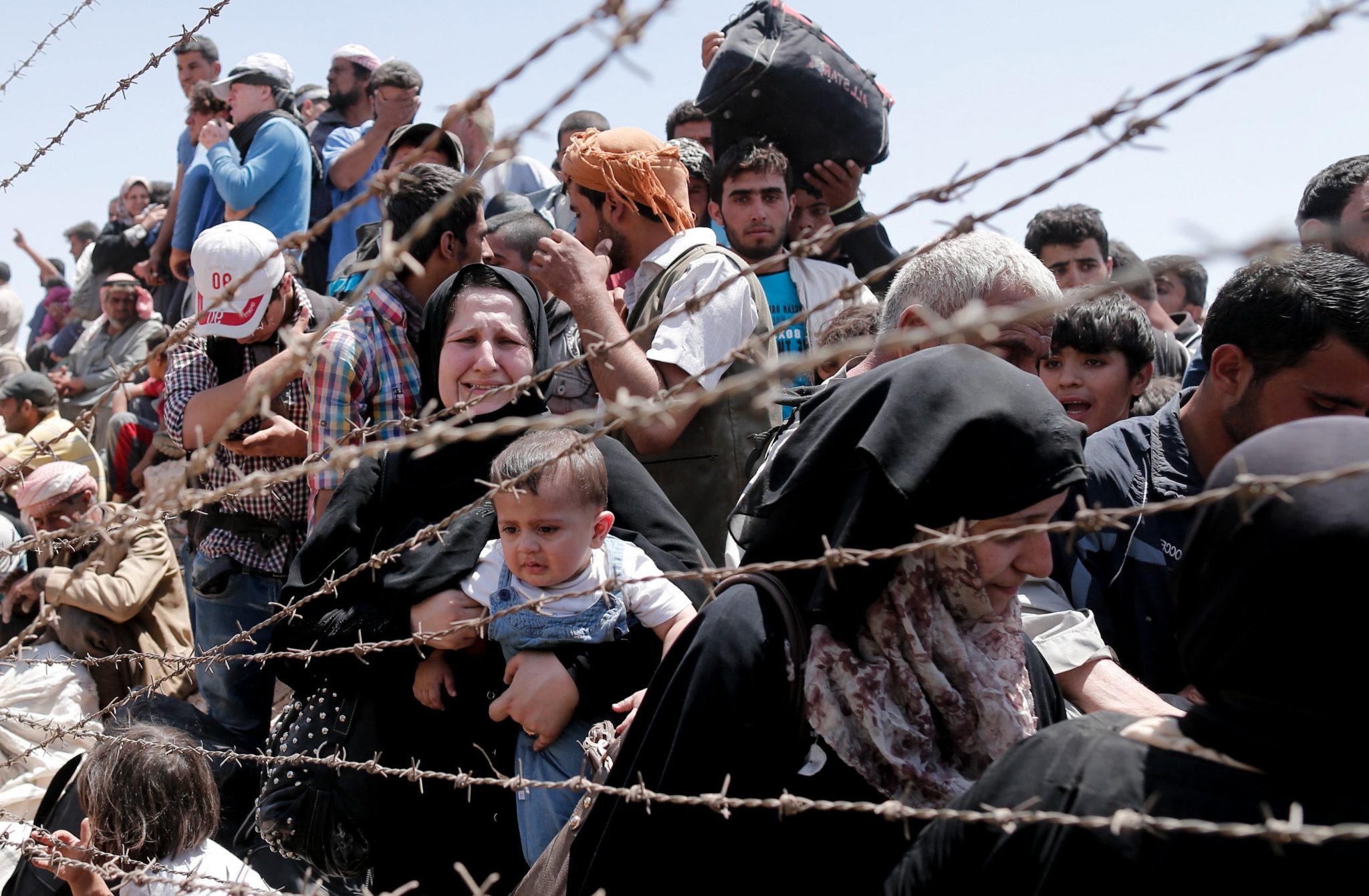
[authorbox authorid=”71″ title=”The Author”]
These days data from the Syrian regime leaked out, including lists of people wanted by the authorities. Names count over one million, including mine.
The lists include the names of the particular person, when he/her was born, where, and by which security directorate is wanted. In my case, this is the General Intelligence Directorate or, as is known to the Syrians, Mukhabarat. I am privileged – other colleagues and activists are wanted by four State Security units. The common between all of us, is that our activity is considered as anti-state and therefore requires our immediate arrest.
Because some of us live in other countries – I am born in Bulgaria, for example – the arrest can take place when entering Syria. There is possibility also to have problems with the authorities of allied countries like Russia, Iran or Lebanon. These of us living outside are lucky – those who are still in Syria and who have resisted the pressure for years, can soon find themselves in jail.
Wanted lists are a direct result of regaining some of the regime’s positions lost over the last seven years. The Russian intervention in 2015 only gave Assad more self-confidence and it was a matter of time the authorities to began to “clear the areas”.
Ironically, for militant groups leaders is easier: they will probably reach an agreement with the authorities. For others, it is clear – if they are in Syria, they will be found and arrested, as is now the case with the civilians coming from Eastern Ghouta , which have been expelled from their homes after months of intensified air strikes campaign. The first videos and signals of captured and tortured civilians have already appeared .
“Kolshi tamam fi Dimashq”
This phrase – “Everything is OK in Damascus!” – has become a mantra for supporters of the regime in Syria since the beginning of the rebellion in the country, and today they are using it again when asked what is happening in Syria. It is not by chance that I use these words as the title of one of the chapters of my book “The Murder of a Revolution”. For Assad’s supporters, all of the events are just an “anti-terrorist operation”. This narrative has survived to this day.
I can give you an example for this narrative and whitewashing campaign from the country where I am based – Bulgaria.
Over the past six years, the Bulgarian public has been involved in an information war between two groups opposing each ones – pro and anti-Assad Syrians. This collision also took place among the Arab community in Bulgaria and in Europe in general, and it became more visible in Bulgaria after 2013. Generally, both Syrian diplomats and opposition officials tried to get the support of one or another political formation to gain more public support. Such stories can be given from every European country, I am sure.
[button color=”red” size=”big” alignment=”none” rel=”follow” openin=”samewindow” url=”https://www.vocaleurope.eu/?s=Refugees”]Curious for More?[/button]
In Sofia, this state of denial of reality by the regime in Syria could be seen quite clearly in the early years of the March 2011 rebellion. This part of the Syrian community, which supported the government, was organizing demonstrations and gatherings to which Bulgarian guests, friends and even local government officials were invited . The goal was clear- the uprising to be portrayed as a terrorist attack against the so-called secular state.
People who support the Syrian government in Bulgaria are well known. What makes them strong is the fact that they have and continue to have everything what is needed to support their cause. I know some of these people since I am former member of the Student Syrian Union and with many of them I met in the embassy where my father worked at that time. These acquaintances dated well before the uprising and little by little subsided with the development of the Syrian revolution.
In the years after 2011, the pressure and psychological harassment against opposition members has begun to intensify. Everyone who have different views was target. Insults, accusations, fabrication of reality – these are just some of the tools. For me, who lived in Bulgaria, there was no danger, but that was not the case for my family in Syria. My relatives were interrogated many times.
In 2013, I was summoned to the embassy by the then ambassador, Bashar Safiya.
The conversation was rather a monologue in which the Syrian ambassador delivered a lecture on the situation in Syria, which “I did not understand correctly” by his opinion. Safiya did not allow anyone in the room, and since my Arab is not the best, he started in English. These conversations have always begun in the same way: “I also supported the protests in the beginning, but …” and “I do not think that Bashar Assad has made no mistakes, but …” and crossing over “there is a conspiracy and lies”, to “you are young and you can not understand the story – do not let them manipulate you.”
Normally, if the listener is still stubborn and keeps his point of view, there is a threat. In this case, its came almost at the beginning of the meeting. I remember almost every detail of that day. “You know your uncle is still in Syria.”
These words meant a very clear threat. It all went down to the fact that the embassy saw a problem with the publications I had in the Bulgarian editions and the theses that I was defending in public. Also, my activities in the activist circles did not suit the Syrian representation in Bulgaria. Then the ambassador offered a deal. “Post an interview with me in your blog,” he said, pulling out a folder from his desk, “and this folder will not go to Syria.”
The whole conversation with the ambassador I publish in my book last year. Today, the threats made in 2013 are a reality. Because of my activity, I’m on a list of wanted persons, along with many others – some of them just for comments critical to the government. In fact, I received the information that it is possible for me to be added in such list when I was warned by the Bulgarian embassy in Lebanon that Hezbollah – a close ally of the Assad regime – have copy of these lists and it is possible my name to be in.
The Syrian opposition is often blamed that many of its members are former Assad supporters who blindly supported the state apparatus. The opposition is indeed composed of many people who have been supporters, and that is obvious. But since there has been no real political life for forty years, what opposition can be expected? If we are not speaking about the Hama events from 1982, there were some examples of internal opposition but these are only isolated cases.
In Syria, activists were arrested, sometimes even on the street. Teachers and other personalities who have been told were arrested without warning – some of them spent half their life in prison.
You may have heard someone say, “But he is a doctor , how is possible he to do such things?”
I’ve seen Bashar Assad. I know his family, his children. I spoke with his personal guards when he was on an official visit to Bulgaria in November 2010 by invitation of then President Georgi Parvanov. Assad came with a whole delegation, including the Foreign Minister Walid al-Moalem, an adviser to the president on political and media issues Buthaina Shaaban, Minister of Economy and Trade Lamia Asi, as well as Assistant Secretary of Foreign Affairs Abdul- Fatah Amura.
Some of the people who met Assad in Sofia, today are part of the political cabinets in the ministries and the presidential administration. To them, this publication and every critic are just ridiculous writings that do not deserve attention.
There are about 200 000 prisoners in Syria today. At least 13 000 were killed by torture in one of the toughest prisons in the country – in Sidnaya. At least 4,000 women are in detention centers without convictions, and according to human rights organizations, they are subjected to systematic rape. In the recent years, a number of people have risked their lives to get information about these torture and arrests, such as the so-called Caesar – a former administration official who was involved in documenting detainees.
Tragicomic is that radical groups, official authorities, and anyone who has oppressed opposition views have all sorts of weapons but are scared by those who have only words.
For me and other analysts, journalists and activists living outside Syria, there is hardly any danger. For many others, however, the danger is daily life, and the lists of wanted persons are going to increase because both Assad and other authoritarian rulers already know that their actions can remain unpunished.




